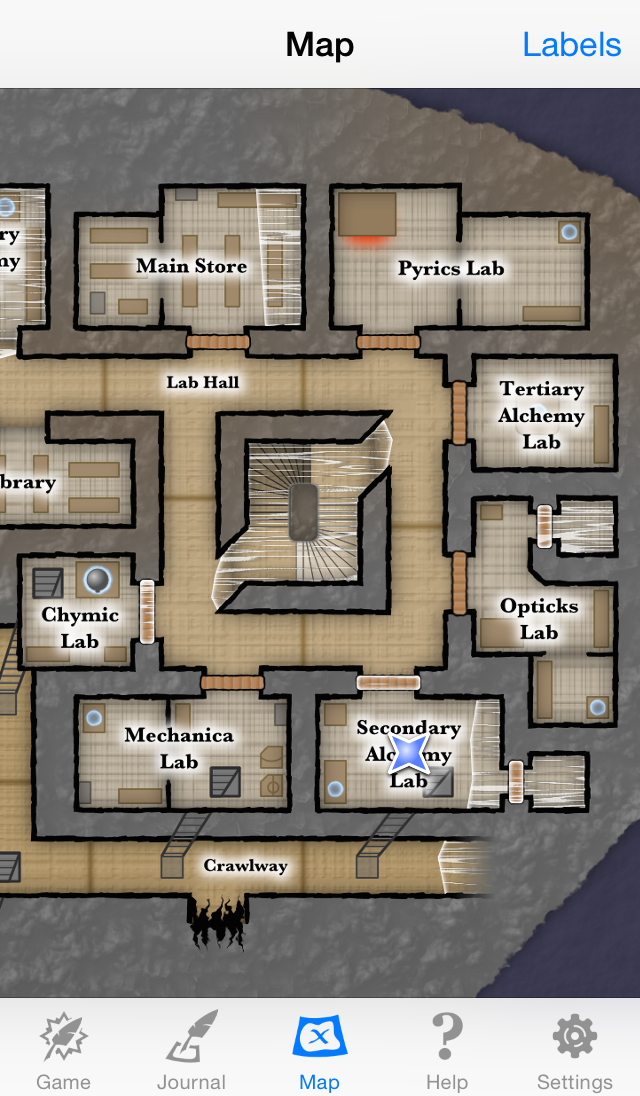 I’ve been playing Hadean Lands by Andrew Plotkin, a parser-based interactive fiction game that I backed on Kickstarter in 2010. It was just released; almost four years is a long time to wait for an IF game, but with this game’s complexity I can understand what took so long.
I’ve been playing Hadean Lands by Andrew Plotkin, a parser-based interactive fiction game that I backed on Kickstarter in 2010. It was just released; almost four years is a long time to wait for an IF game, but with this game’s complexity I can understand what took so long.
The game is an exploration of alchemical processes. It follows the tradition of steampunk and Jonathan Strange & Mr Norrell, among others, by examining a society in which a form of magic exists from a speculative fiction perspective: it’s set on a “marcher,” an alchemical spaceship, where you are a mysterious “swabbie” after a mysterious accident. At the same time, it’s a stunningly well-implemented work of IF programming.
Base Metals
The game automates many repeated tasks: if you’ve performed a certain alchemical ritual or passed a certain obstacle already, you can do it again with a single command. This is especially nice since I’m playing on my iPhone, where extended typing is an awkward and physically painful experience. There’s an in-universe justification to reset the world to the beginning state to prevent painting yourself into a corner, although a mid-game twist causes this to not reset everything. As Emily Short observes, this changes the game into one that increases in scale as it progresses like Candy Box or A Dark Room. At the beginning, you’re manipulating individual ingredients to perform a single ritual, while later on you’re considering resource dependencies and performing swathes of rituals at once to produce a final work.
The game is about alchemy. Yes, alchemy is the conceit of its setting, but it’s also about alchemy on a deep structural level. Medieval alchemy was simultaneously about chemistry and about spiritual enlightenment. Magic and science melted and flowed together, ancient knowledge transmuting through time and deliberate obfuscation into mysticism and then being revived. Through the vulgar one understands the divine, and by perfecting oneself one perfects one’s work. There’s a concept in alchemy: solve et coagula, to separate and bring together. Alchemy taught that to purify something you had to break it apart and recombine only the useful bits.
Aqua Regia
The society in Hadean Lands is dramatically imperial. They appropriate “oriental” and Egyptian rituals when useful, replacing their spiritual elements with condescending rice-paper tokens and baubles. These rituals are named after their translators, not their originators. The society strips apart other cultures and retains only the bits they feel are useful. Likewise, the player must examine the rituals as presented and understand their components, making substitutions to change a brass-cleaning ritual into a rust-removal ritual or to invert the effect of a procedure.
What begins as a mysterious environment quickly turns into a bare simulation of resource manipulation, then crashes back into mystery with the mid-game twist of a “Great Marriage” that results in the first independently-acting agent and (in my case) a journey of ellipsis into a new, alien environment.
This is definitely a Plotkin game. He’s one of the best game designers in existence when it comes to marrying complex systems with story and setting. The puzzles here are hard but mostly fair, and I feel like I’m still learning things about the world as I play. I look forward to the end game and the completion of his Great Work.
Hadean Lands is available on iOS and most personal computers for $5 and is well worth the price.
Yow! Thanks for the writeup. I’m glad you’re enjoying the game.
Hopefully the ending will hold up to the standards so far.